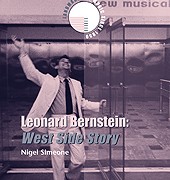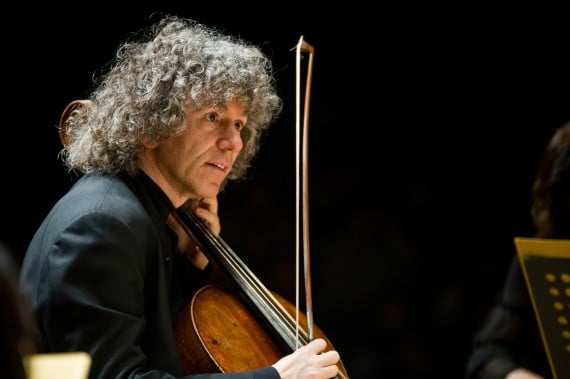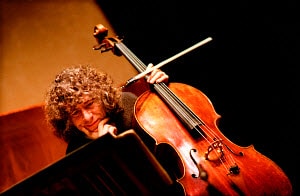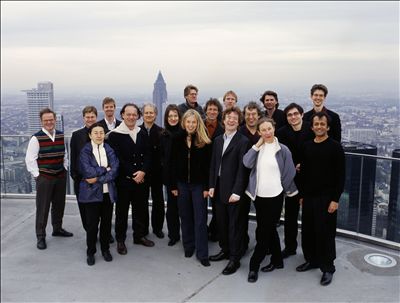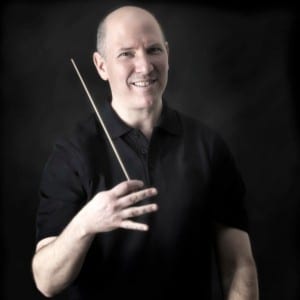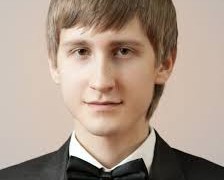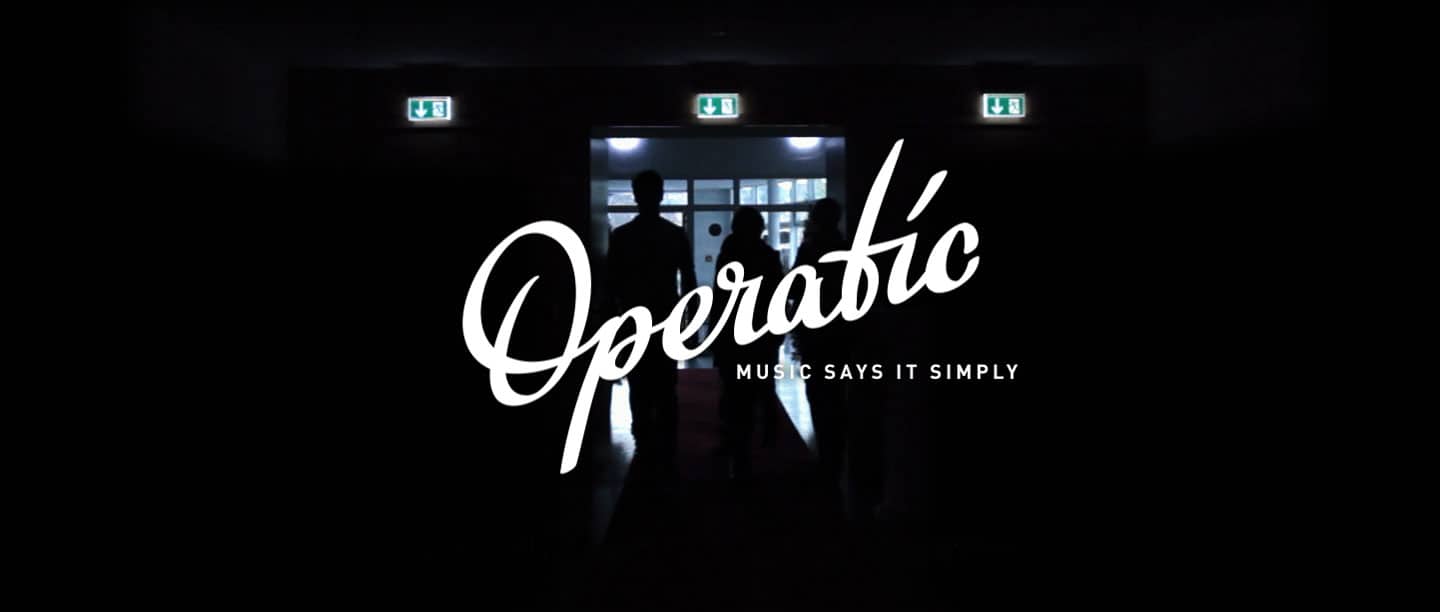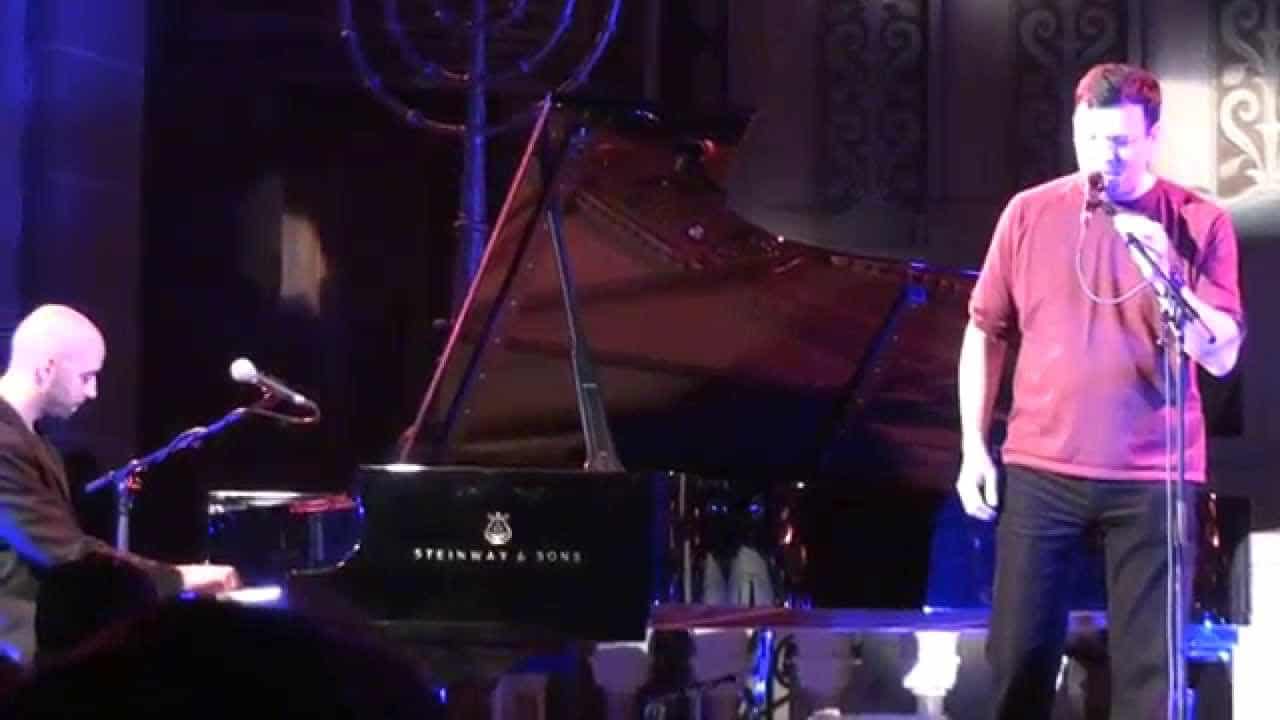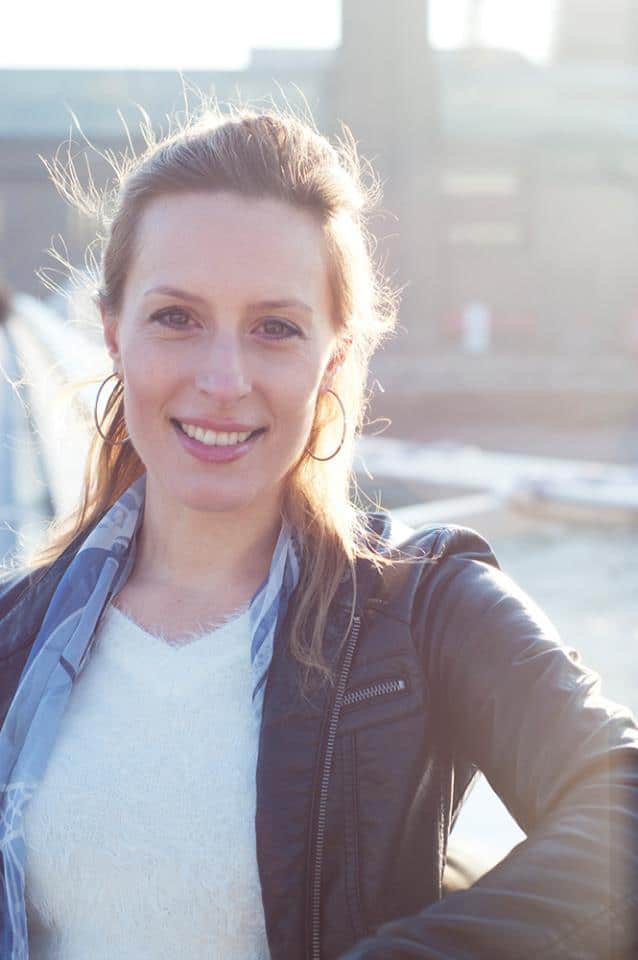Elisabeth Wiklander is a cellist, formerly with the Netherland Philharmonic, now in the London Philharmonic Orchestra. In 2009 she was diagnosed with Asperger’s Syndrome.
In an extended interview with Åsa Höjer for the parish magazine of the Swedish Church in London, she talks about it with hope and impressive candour.
Up until I was diagnosed I always had rock solid confidence in social situation but after the diagnosis, my confidence dropped to zero. I became aware of everything! I suddenly gained knowledge that changed everything. Knowledge is like that, it can tear down everything you thought you knew. But something stronger can then be built, I began to see myself in a new context.
Last year Elisabeth was appointed cultural ambassador for the National Autistic Society. She has given us permission to republish the entire interview below.
“I really wanted to belong but could I never fit in. It was like I was in a glass box, I could not get out and no one could come in.”
One evening nearly two years ago I met a woman who immediately made a huge impression on me. She spoke with great enthusiasm about how she recently moved to London, about the dream job she had got after years (!) of trial. We decide to meet again soon, when there was time… Two lives filled with hectic days due to professions that demand a lot of time and energy. Two years have passed but the moment has come. We are back in contact with each other, I attended a concert with the orchestra that she plays in and we are finally about to meet again. Ten minutes before I’m about to rush off to the underground to our meeting, I see that she’s posted a link on her Facebook page. A link to an article published on the BBC News with the title “How the Bridge’s heroine became a role model for women with autism”. In her post she writes “This is the first time I feature in an article as an autistic woman. Lucy Townsend has done a fantastic job and managed to put my words down just as I meant them. My quest for autism awareness that I set out for on April 2nd this year when I came out publicly as autistic has taken off. And folks, it has taken off with a speed that’s unbelievable. You can expect a lot of posts in the near future. Things, big things, have started to come in motion and it’s very exciting”. I press “print”, receive an article 8 pages long, shove it all into my bag along with note book and pencils and run to the underground station.
SAGA IN THE BRIDGE- A FACE FOR AUTISM
– In 2006 I learned that there is something called Asperger’s and realised that “this concerns my family”. 2009 I received the diagnosis myself, Elisabeth Wiklander tells me where we sit in a cafe a stone’s throw from her place of work at the Southbank Centre in London. She is pretty, open and eager to tell her story, in fact almost evangelical.
– By 2009, there was much more to read about autism and particularly about Asperger’s than there was back in 2006. To date, I have read a huge number of books and a large amount technical literature, probably most of what is available to read.
Back to the news article. Many of you might have watched the Swedish-Danish TV-series The Bridge, which was a huge success both in Scandinavia as well as here in Great Britain, especially because of the main character, Saga, and the way she acts. The scriptwriters of the series have never confirmed that Saga has Asperger’s, but Sofia Helin who plays Saga, often says that she studied people with autism and Asperger’s to help prepare herself for the role. So what is Asperger’s Syndrome? The Swedish Association for Autism and Asperger’s write on their homepage:
Symptoms
Asperger’s Syndrome is often described as autism in people with normal – or above average intelligence but without the communication difficulties that are present in classic autism. The symptoms of Asperger’s are also shown later than in classic autism.
Diagnosis
The problems are often revealed first in pre-school where the child’s different social behaviour becomes clear, but it can take longer than that before the surrounding people react and an investigation is initiated. The average age for a diagnosis of Asperger’s Syndrome is 8-11 years old.
Hard to define
Many people with Asperger’s Syndrome have had stealthy problems during their entire upbringing and first receive their diagnosis only after having reached adulthood, often after years of personal suffering and alienation.
” I will always be different and that’s okay; thanks to the increasing understanding and awareness from people around me, the autistic alienation doesn’t weigh as heavily on me any more.”
– Autism is different for every individual Elisabeth says, and continues; as a child I couldn’t read body language very well, I couldn’t understand social rules. During my teens I isolated myself, living in a cabin in the Swedish outback. I didn’t have much in common with my female peers and it was difficult to have a friendly relationship with boys, as they often assumed that I was romantically interested in them. I lived alone in the cabin in the woods for several years – like Ronja the Robber’s Daughter (a Swedish children’s story by Astrid Lindgren). I simply couldn’t understand non-verbal communication.
THE ROAD TO BECOMING A CELLIST
In spite of exclusion and difficulties in being understood, or understanding others, Elisabeth had a relatively good time growing up, mainly because she was recognised as being very good at certain things like sports, music etc. Her parents are both musicians and as a little girl she was given a cello.
– It was Guido Vecchi, the former principal cellist of the Gothenburg Symphony Orchestra, who inspired me to become a cellist. He played concerts with my father and gave me my first lessons, Elisabeth says. – I can’t remember life without the cello, I’ve played since I was three years old.
In high school she chose the music course and after that she was accepted to the music college at the University of Gothenburg at 18 years old. Elisabeth has studied with amongst others Erling Blöndal-Bengtsson, Frans Helmerson, Thorleif Thedéen, Mats Rondin and Dmitry Ferschtman. In Autumn 2005 she began her master studies in Harro Ruijsenaar’s cello class at the Royal Conservatory in The Hague, The Netherlands.
She graduated from her master’s exam in 2008 with the highest mark possible and was that same year accepted as Academist in one of the world top orchestras, The Royal Concertgebouw Orchestra in Amsterdam.
– Arthur Oomens, cellist in the Concertgebouw Orchestra, tutored me in orchestral studies at the Conservatory in The Hague. I call him my “cello daddy”, I learned an incredible amount from him, Elisabeth says nostalgically.
– Arthur was also my mentor during my time at the Academy and we still have a very close relationship. He gave me the tools I needed to become an orchestral player and ignited my passion for it.
– It was when I started to play with The Royal Concertgebouw Orchestra, at one of the highest standards in the world, that I realised “this is what I want to do for the rest of my life”. I practiced like a maniac for several years in order to raise my playing to such a level that I could get a job in an orchestra of a similar class.
At the same time, Elisabeth realised that she had to start dealing with herself and to understand people and social rules better, in order to be completely happy in her work place from a social perspective as well.
– If you are born autistic, you always will be autistic and you can’t separate autism from your personality.
The fact that Elisabeth has made a long journey, on many different levels, is not hard to understand when we sit here in London and she speaks with an open heart about her life with hardships as well as fantastic successes.
– Up until I was diagnosed I always had rock solid confidence in social situation but after the diagnosis, my confidence dropped to zero. I became aware of everything! I suddenly gained knowledge that changed everything. Knowledge is like that, it can tear down everything you thought you knew. But something stronger can then be built, I began to see myself in a new context.
LONDON PHILHARMONIC ORCHESTRA
In 2013 Elisabeth became a member of the London Philharmonic Orchestra (LPO), she is therefore also a shareholder in the orchestra because that’s the way the company is run, all members are shareholders.
– When I auditioned, I didn’t realise that they had had a total of around 500 cellists applying over several years, she says and smiles.
She auditioned before a jury and after that she got a trial in the orchestra. The process was ongoing for three whole years!
– “There’s something special about the LPO. A big part of it is the social aspect, it’s an orchestra that has a reputation of being particularly friendly and there’s a nice mix between everyone in the orchestra. The work is very varied, we play 2-4 programs every week which means every concert has different music that we have to rehearse. This makes us one of the hardest working orchestras in the world.
– I came out as a person with Asperger’s Syndrome on April 2nd 2015. The reception has on the whole been very positive and anyone who was negative or wouldn’t understand has become silent.”
Their home is the Royal Festival Hall on London’s Southbank. During the summer months, the orchestra is resident at The Glyndebourne Opera Festival in Sussex. In addition to this, the orchestra records film music – Ironman 3 and Lord Of The Rings are just a few of the projects, and we tour every year internationally to the great concert venues all around the world.
The orchestra is big, with sometimes up 100 players, and was founded in 1932 by Sir Thomas Beecham. Since 2007 Vladimir Jurowski has been the principal conductor and Andrés Orozco-Estrada was appointed guest principal conductor as recently as September 2015.
I was already aware that it is hard for the orchestra members to have time for a “normal” family life and Elisabeth confirms that for some who live alone without children and families – the orchestra becomes a family for them.
– The tours can sometime be straining on relationships between us, but there is generally a very good atmosphere. For someone like me however, touring life can be very hard and stressful.
EVEN THE ORDINARY DAY REQUIRES PLANNING
Elisabeth has been fortunate enough to meet a man with great social competence and a lot of empathy. Today they live a good life together, but they still always have to be ever mindful of her condition. She tells me about her boyfriend having to learn not to invite people over to their home without warning and about the small gestures and signals that they can use to communicate with each other when at a dinner party.
– I have explored ways that can get me through an evening out, these are things I had to learn all on my own, Elisabeth explains. All social interaction is extremely tiring for me.
Her body language is strong, the eyes are intense and her smile is never far away.
– But what about something like this, I have to ask, a meeting where you have to be social and talk about yourself in front of a stranger?
– Well, Elisabeth replies with a strained smile, it is an effort. She explains to me how she unconsciously registers everything that is happening around us, all other conversations that take place in the room, everything on the walls, the smells and how people laugh. To register all this is normal for her, there is nothing she can do about it. I think to myself it is a good thing that we’re sitting in the lower part of a somewhat dimmed room with only a few people.
– I know that I have to get my head around these things. Autism is often linked to loneliness, Elisabeth points out and we talk for a while about the fact that knowledge of Asperger’s and autism can actually save lives.
-Especially during my teenage years, it was hard. I wanted to be part of things but I could never fit in. It was as if I was in a glass box and I couldn’t get out, and no one else could come in.
She turned herself inside out trying to adapt but in spite of all her efforts, and in spite of all of the meetings with doctors and psychologists, she reached the age of 28 before she got her diagnosis of Asperger’s, and even getting that was only due to her relentless determination. After having read a huge amount of literature, articles and other information that one could find about autism, she was convinced that she was right and brought it all to a doctor saying ” I have read all of this, I know I’ve got this syndrome, please listen to me”.
– The problem was that although the specialists knew about this condition, to get a referral to one you had to go via the GP, Elisabeth explains. Understandably, the expert knowledge required was not there because there was a lot of ignorance amongst GPs and nurses concerning the new scientific researches about autism, this information hadn’t existed when they trained.
– All neurotypical brains are created the same way while each autistic brain is very unique in how it operates. My brain works very much like a computer and so my emotions have an ‘on/off’ switch, not a dimmer like most others.
“We need people to be understanding when things are difficult for us without us having to be regarded as disabled.”
A LIFE WITHOUT FILTER
Autism is a genetic condition and results from a different neurological constitution. You have a brain that works with a different “operating system”, like for example MAC versus PC.
– I have a brain that operates differently and that processes information differently from the majority of people. This in itself is not a problem, what creates suffering is that society is adapted to a different “operating system” than the one I’m biologically created with. When this causes complications, there is not enough understanding and knowledge about how people like me function and what our needs are. We are constantly misunderstood and often become outcasts. Our talents and skills become unused because we don’t fit into the social norm.
We can have needs that neurotypical people don’t understand, for example if a working environment has very bright light or strong smells, these can cause sensory overload.
Elisabeth is good at explaining autism and Asperger’s in a way that I, with my neurotypical brain, actually can relate to and understand. I gratefully let her continue.
– Neurotypical people’s brains are better at filtering out impressions and stimuli that the brain believes not to be of importance in a certain situation. Autistic people haven’t got the same filter and are constantly inundated with details of everything around them, which is very tiring because it’s a lot of information for the brain to process. An extreme but classic example is when certain autistic individuals have flown over a city for the first time and later are able to sketch everything down to the smallest detail.
UNIQUE AND LONELY
With MRI scanning scientists have been able to see that neurotypical people’s brains are created according to the same template, meaning a certain part of the brain lights up in scanning when dealing with a specific task. This “sameness” doesn’t mean that all neurotypical people are alike, everyone is of course unique and individual, but the way their brains work to interpret the world around them and to process information is the same. Here is where the autistic brain differs. It has been shown that autistic brains use a different centre and a different amount of neurons therein. There is, for example, an increased number of neurons through the logic centre which make autistic people prone to noticing details and often give them a penchant for systems and logic. The uniform manner in which neurotypicals process information doesn’t exist in autistic people, there isn’t the same unified picture. It seems as if the brain of every autistic individual operates uniquely, even though one has seen characteristics in how it differs from the neurotypical brain. This can lead to isolation and loneliness for autistic people.
– Neurotypical people mainly use nonverbal communication when interacting with each other, for example body language, mimicking and intonation in their speech. Autistic people have a different mental constitution here, we are ‘blind’ to a lot of this, Elisabeth explains, and continues;
– Like a dyslexic person who sees letters but doesn’t read the word, we see body language but don’t always read the intention or the message. However, just as a dyslexic can eventually learn to read we can train ourselves to better read a social situation. A dyslexic student doesn’t want to be called stupid in school and we who have this social dyslexia also want to feel that we’ve got understanding for the things that are difficult for us without having to be labelled disabled. Autistic people are often very intelligent.
INCREASED QUALITY OF LIFE WITH KNOWLEDGE
The ability to read another person’s intentions and emotional state is called ‘theory of mind’. Autistic people have less natural ability in this area but can learn social skills and learn to read social situations better, just like you can learn a different language or a musical instrument. But the ability to learn this is not build into an autistic person’s system the way it is in a neurotypical human being, who is born with the ability to absorb this form of information automatically.
Autistic people decipher a social situation or a person’s intentions much through the logic centre of the brain, almost the same way you’d solve a mathematical equation, and that’s why social activities fatigue people with autism quicker than they would a neurotypical.
– The way we do it requires a lot of energy, but for a neurotypical person it all happens on a more instinctive level. It’s important to remember that being autistic doesn’t have to follow a certain norm. Someone told me once that I couldn’t be autistic because I’m not a computer nerd. That’s about just as stupid as saying to a homosexual man that he can’t be homosexual because he doesn’t do classical ballet.
” I am hopeful for the future. The knowledge of how our amazing brains work is unexplored like the depths of the oceans.”
Just like all neurotypical people are different and unique individuals, so also are autistic people, unique with different personalities, interests and values. We only differ in how we process information and how we perceive the world around us. Greater common knowledge about these differences and how they are being expressed in different people can make society more able to take advantage of the amazing skills that autistic people often possess and increase the quality of life both for those who are born with autism, and their families and people who live or work with them, Elisabeth emphasises.
Our DNA tells us that the genes that are believed to cause autism are very old genes from our deep past (Steve Silberman, “Neurotribes”) and that they have been important contributors to our development as a species through individuals who, thanks to their hyper-focus, love for details and the ability to think “outside the box”, pioneered many of our most important inventions and successes within the medical and scientific fields.
– When I try to explain my difficulties I often hear people say “yes but so what, I too can feel that way sometimes!”. Autistic people don’t only have traits that are never recognised in neurotypical people, we share experiences and feelings that everyone can feel (for example neurotypicals can become tired from socialising). It is the extent to which it happens that is the difference. Let’s compare it with saying to a person who suffers from depression “yes but so what, I too can feel depressed sometimes”. That’s terrible. To feel depressed or down is not the same as suffering from depression, which can be deadly. A good friend of mine who was trying to be helpful once said that he too got tired from social situations and that all I have to do is just to practice more. He’s gay so I told him that by the same logic, he should be less attracted to men if he just practiced having sex with girls more. Then he understood and he gave me a big smile.
Elisabeth recalls how easy she found algebra at school, it was just logic, and about how (for example) the periodic table works as a tool for her to tune out from everything else (which happens when the logic part of your brain is excessively active). I want to understand, try to and I think that I do. I think again about Saga in The Bridge, how her “obvious” autism makes us viewers laugh but also understand and appreciate it.
– If I hadn’t become a cellist I would have loved to do research in neuroscience, and I have always had a big passion for the natural sciences – nature, astronomy, the environment.
The hours have literally flown during our conversation and I realise that I’m a more educated and also a more curious person that hugs Elisabeth when we part. Imagine how much one conversation with one, unique person can open doors, contribute to understanding and increase the desire to read and learn. We humans have so much to give to each other- if we only dare to listen and be open to change.
“The changes that have started to take shape during the last five years have allowed me to see things that feel nothing short of miraculous; they have saved marriages, deepened ties within families and yes, even saved of lives.”
In 2015 Elisabeth was appointed cultural ambassador of the National Autistic Society. The London Philharmonic is very positive about having a collaboration with the NAS and Elisabeth sees it as a fantastic tool to make a difference.
